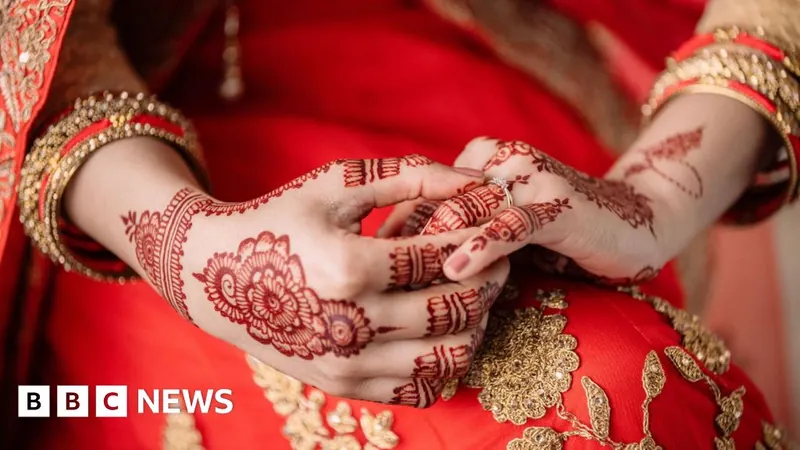
Controversy Erupts in India Over Marital Rape Legislation: Government Calls It 'Excessively Harsh'
2024-10-04
Author: Yan
Introduction
In a significant legal debate, the Indian government has vehemently opposed petitions aimed at criminalising marital rape, labeling the move as "excessively harsh." The federal home ministry conveyed its stance to the Supreme Court of India, stating that while a man does not possess a fundamental right to forcibly engage in sexual acts with his wife, there are already sufficient laws to safeguard married women from sexual violence.
Historical Context
The Supreme Court is currently reviewing pleas to amend the archaic British-era law, which exonerates men from being prosecuted for rape within the confines of marriage. This law, established in 1860, includes exemptions that state a husband cannot be convicted of raping his wife, provided she is not a minor.
Statistics on Marital Abuse
Shocking statistics reveal the grim reality of marital abuse in India; according to a recent government survey, one in every 25 women has experienced sexual violence at the hands of their spouses. Despite widespread advocacy for reform, India remains entrenched in the laws that continue to protect marital rape, placing it among a select few countries, including Pakistan, Afghanistan, and Saudi Arabia, where such exemptions exist.
International Perspective
Internationally, more than 100 nations, including Britain—where marital rape was criminalised in 1991—have outlawed the practice. Activists argue that the current legal framework is outdated and ill-equipped to address contemporary social dynamics, positing that any act of coerced sex should unequivocally be classified as rape, irrespective of the perpetrator's relationship to the victim.
Arguments Against Criminalisation
The push to criminalise marital rape reflects a growing recognition of women's rights, garnering attention and criticism from various global human rights organisations, including the United Nations and Amnesty International. Yet, the Indian government remains resistant, supported by religious groups and men's rights advocates who claim that consent for sexual relations is inherently implied in marriage. They caution that introducing laws against marital rape could disrupt the fragile fabric of the institution of marriage, leading to unintended consequences.
Legal Consistency
The legal consensus within the country remains ambiguous, with conflicting court judgments resulting in both the prosecution and exoneration of husbands in alleged marital rape cases. This contentious issue rose to the Supreme Court's attention following a split verdict from the Delhi High Court in 2022. The apex court commenced hearings in this pivotal case back in August.
Government's Position
In a 49-page affidavit submitted recently, the home ministry characterized marriage as a unique institution with its own set of rights, obligations, and legal implications. They stressed that while expectations of access to sexual relations exist within marriage, this does not grant husbands the right to coerce their wives—a sentiment that they argue makes including marital rape under anti-rape laws excessively punitive and disproportionate.
Social vs Legal Debate
The government maintains that the matter is fundamentally social rather than legal, asserting it is the prerogative of Parliament to deliberate and craft policy related to these complex issues. As expectations for change mount, the unfolding legal battle may have far-reaching implications for the rights of women in India and the way society addresses domestic violence.



 Brasil (PT)
Brasil (PT)
 Canada (EN)
Canada (EN)
 Chile (ES)
Chile (ES)
 España (ES)
España (ES)
 France (FR)
France (FR)
 Hong Kong (EN)
Hong Kong (EN)
 Italia (IT)
Italia (IT)
 日本 (JA)
日本 (JA)
 Magyarország (HU)
Magyarország (HU)
 Norge (NO)
Norge (NO)
 Polska (PL)
Polska (PL)
 Schweiz (DE)
Schweiz (DE)
 Singapore (EN)
Singapore (EN)
 Sverige (SV)
Sverige (SV)
 Suomi (FI)
Suomi (FI)
 Türkiye (TR)
Türkiye (TR)